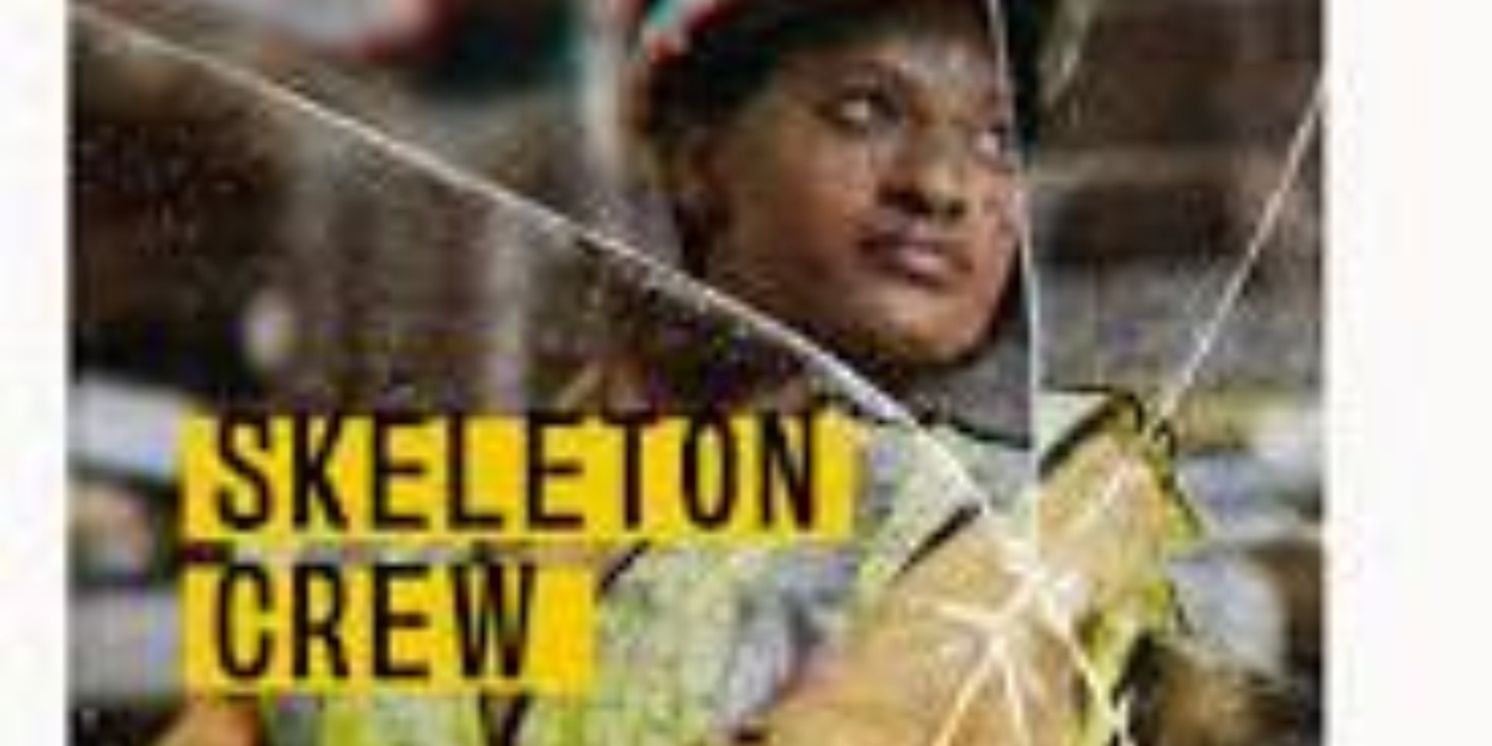Review: SKELETON CREW at Studio 2 At Riffe Center
When factories close, much more is affected than the bottom line

%2C%20Wilma%20Hatton%20(FAYE)%2C%20Rico%20Romalus%20Parker%20(DEZ)%20-%20Photo%20by%20Terry%20Gilliam(1).jpg?format=auto&width=1400) There are no wakes, no funerals, no final arrangements when an industry dies. Instead, it is the workers who are left behind, stumbling around as they try to determine their future. In Dominique Morisseau’s exquisitely written and wonderfully acted SKELETON CREW, four Detroit auto workers face an undefined future as the powers-that-be shrink their plant to the last few workers that will eventually shut down the plant.
There are no wakes, no funerals, no final arrangements when an industry dies. Instead, it is the workers who are left behind, stumbling around as they try to determine their future. In Dominique Morisseau’s exquisitely written and wonderfully acted SKELETON CREW, four Detroit auto workers face an undefined future as the powers-that-be shrink their plant to the last few workers that will eventually shut down the plant.
The Contemporary Theatre of Ohio’s production of the play, directed by Raymond O. Caldwell, is entering its final two weekends at Studio 2 in the Riffe Center (77 S. High Street in downtown Columbus).
Dez (powerfully played by Rico Parker) offers up this poignant eulogy for his dying factory: “Say ‘em empty plants are breeding grounds for them (ghosts). You can hear the echoes of machines runnin’ and runnin’ in the hollow space. … Some of the jokers never make it back out. The old gas vapors swallow them whole.”
Parker joins a talented quartet of actors, performing with Wilma Hatton (Faye), Clarissa Rai (Shanita), and Alan Tyson (Reggie), in bringing this two-act, two-hour show to life. Each actor brings out certain nuances to his or her character, revealing the character’s strengths and concealing his or her secrets.
Hatton’s Faye serves as the matriarch of this makeshift family of workers. In the opening of the show, Faye surveys a list of ordinances posted by Reggie, her department’s foreman. When her eyes fall upon a hand-made sign that reads “No smoking, Faye,” she breaks into a mischievous grin, reaches into her pocket, and lights up a cigarette. When she hears Reggie’s approach, she quickly tries to fumigate the room with air freshener.
While she loves to flaunt a devil-may-care attitude to the rules, Faye is fiercely protective of her co-workers and tries to save everyone’s job.
On the polar end of the spectrum is the legalistic Reggie, whose entire existence at the plant is to post white signs saying what is permitted and what is not allowed. He has been forced to keep the secret of the plant closing. He feels horrendously conflicted about keeping the information from his co-workers as well as choosing which ones will be the next to be let go.
Towards the end of the play, Reggie confides to Faye, “I look like I am disappearing from myself.”
With a history of insubordination and a recent write-up for bringing a gun to work, Dez appears to be the logical candidate to be let go. And yet, his co-workers rally to keep the fiery, defiant worker on the line.
Shanita, a very pregnant line worker who hides the identity of the baby’s father from everyone, thwarts the advances of Dez while hiding her feelings toward him. When he volunteers to walk her to her car after work, she warns him, “You hit on me and I will pepper spray your ass.”
In this play, everything, including the sparse, industrial breakroom set, seems to work together. Set designer Isaac Ramsey creates a workspace that seems to come right out of the 1970s. Its clouded windows showcase the “dancers” of the assembly line as a way of introducing each scene.
For those who have been through the experience of working in a company on the verge of closing its doors, SKELETON CREW will provide vivid flashbacks of the dying dreams, the co-workers and a little bit of one’s soul that gets left behind on the assembly floor.
SKELETON CREW presents its audience with walls where a thin coat of progress peels away to reveal the splatter paint of pain. It is a world, for those who have gone through it, that is hauntingly familiar and painfully realistic.
Faye puts it best: “Ain’t no tragedy. Just is what it is.”
Photos: Terry Gilliam
%20-%20Photo%20by%20Terry%20Gilliam%20(1).jpg?format=auto&width=1400)
Reader Reviews
Videos

